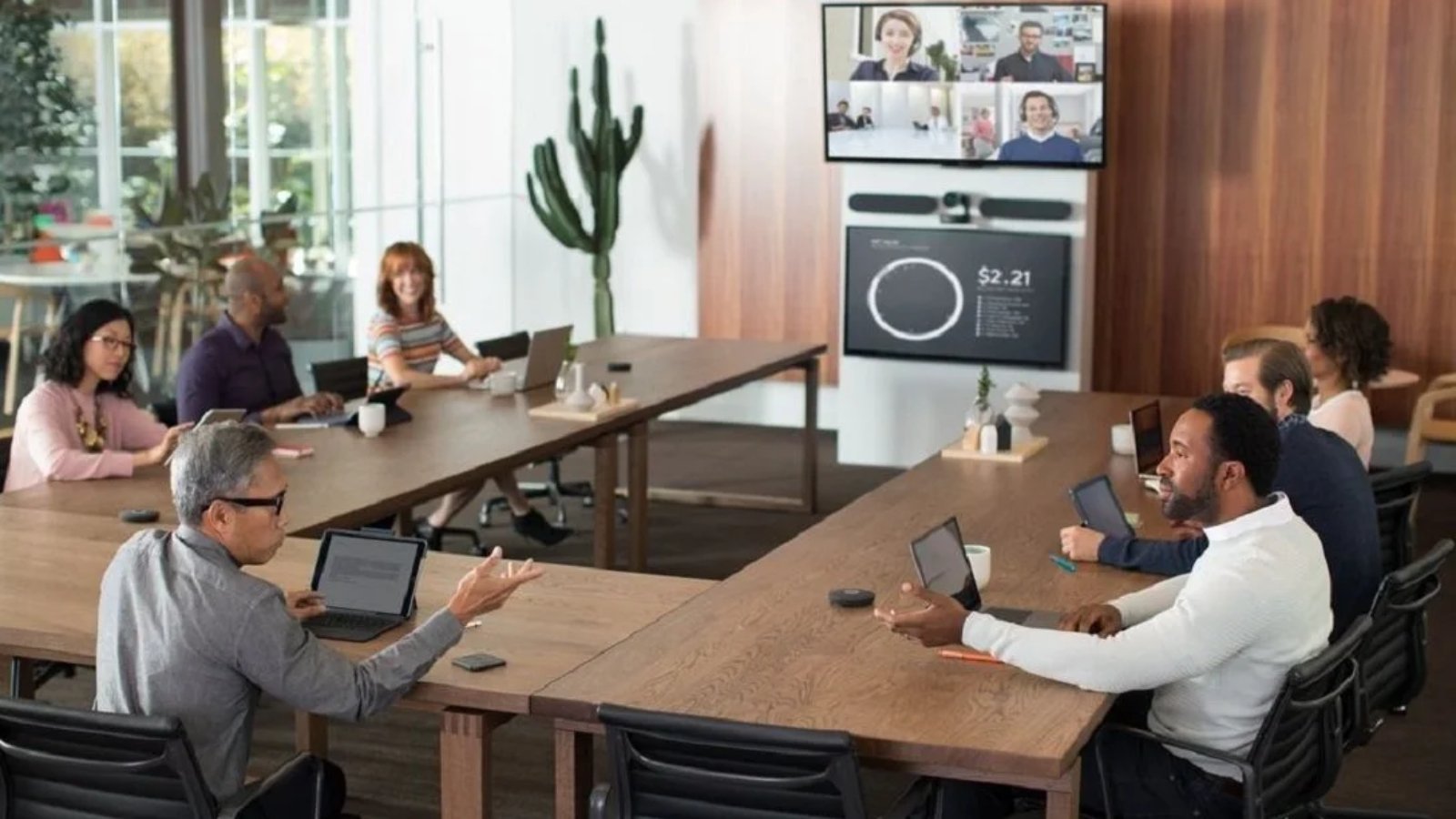But how do we turn a discussion from a forum for voicing opinions into a collaborative journey towards knowledge?
This article will illuminate the fundamentals of productive discourse, examine its success factors, and provide advice on honing the skill of effective communication.
Constructive Discourse Starts With Maintaining Composure
Maintaining composure is the cornerstone of any productive discussion, as it facilitates clearer understanding, effective communication, and satisfactory solutions. It lifts the veil of ambiguity and opens the door to knowledge, new perspectives, and comprehension. Let's set out to learn about its advantages in productive discourse:
1. Active Listening: A Window into Others' Thoughts
Keeping our calm helps us listen attentively to other people without being distracted by our own bad feelings. This enables us to understand their thoughts and feelings accurately and respond with awareness and respect. Conversely, agitation causes distraction and makes it difficult to concentrate on the topic of the conversation, which may lead to misconceptions and impede the flow of the discourse.
2. Mutual Respect: Bridges for Communication
Maintaining composure demonstrates our respect for the other person, their values, and their beliefs, even if we disagree with them. It establishes a safe environment where everyone can voice their opinions without hesitation or fear. Conversely, shouting and agitation cause others to feel threatened and disrespected, which hinders productive dialogue and reduces chances for understanding.
3. Clarity in Expression and Communicating Ideas Effectively
We are better at structuring and articulating our ideas clearly when we are calm. We choose our words carefully and arrange our ideas logically, making it easier for others to understand our message. Conversely, agitation causes confusion and makes it harder for us to express our ideas clearly, which might lead to more misunderstandings.
4. Acceptance of Differences: Open-Mindedness and Broad Horizons
Maintaining composure helps us accept differing viewpoints, even if they contradict our own. We become open to others' opinions and try to understand their perspective, enriching the discussion and allowing us to see things from a wider lens. Anger, however, leads to rigidly holding onto our own views and outright rejection of others' perspectives, hindering constructive dialogue and narrowing our thinking.
5. Compromising and Finding Common Ground:
Maintaining composure enables us to seek middle-ground solutions that satisfy all parties. We become more flexible in dealing with disagreements, appreciating the needs and interests of each side. In contrast, conflict leads each party to cling to their position, obstructing the search for common solutions and prolonging the disagreement.
6. Positive Relationships Blossoming from Understanding:
Maintaining composure helps us maintain positive relationships with others, even when we disagree. We preserve their friendship and respect, strengthening the bonds of cooperation between us. However, agitation leads to strained and damaged relationships, leaving feelings of resentment and animosity.

Golden Tips for Maintaining Composure During Discussion
- Breathe deeply before speaking to help you relax and organise your thoughts.
- Focus on listening attentively to the other party without interrupting.
- Express your ideas clearly and respectfully, and use proper language to ensure clear communication.
- Avoid aggressive or offensive language and replace it with a calm and constructive one.
- Be mindful of your body language and maintain verbal and visual contact to show your interest and respect.
- Accept disagreement with the other party, but this doesn’t mean you should attack or dismiss them.
- Focus on common ground, identify, and build on points of agreement.
- Don't give up easily; be prepared to compromise on some of your ideas if necessary.
- Remember that the goal of discussion is to achieve better understanding, not to win an argument.
Composure is the key to a productive discussion. It enables effective communication, understanding of different perspectives, and finding satisfactory solutions. Let’s maintain our composure during discussions and encourage productive community discourse.
The Importance of Effective Communication in Constructive Discussion
Effective communication is the cornerstone of any constructive discussion. It bridges minds, allowing participants to exchange ideas and information clearly and precisely. Hence, participants embark on a purposeful journey towards mutual understanding, discovering new perspectives, and achieving positive outcomes that benefit everyone involved. The importance of effective communication manifests in several fundamental ways:
1. Improving Understanding
Effective communication helps avoid misunderstandings and misinterpretations by clearly expressing ideas and attentively understanding others' opinions. Barriers between participants disappear with every word spoken and every statement heard, revealing the way to mutual understanding and offering a more comprehensive and clear picture of the situation.
2. Enhancing Respect
Respectful communication gives everyone a sense of worth and fosters an atmosphere that welcomes thoughtful discussion and active engagement. Fear evaporates, and hesitations disappear in a respectful environment, encouraging receptivity to new ideas and the courage to voice viewpoints bravely and confidently.
3. Problem-Solving
Effective communication is a powerful tool for solving problems. It helps precisely identify issues by asking questions and listening attentively. This allows participants to gather diverse information from multiple perspectives. With this accumulation of information, new avenues for problem-solving open up, making it easier to reach effective solutions.
4. Building Relationships
Effective communication fosters trust and understanding among participants, leading to strong and lasting relationships. Strong ties are forged through constructive communication and the courteous exchange of views, which lays the groundwork for successful cooperation and reciprocal support in many walks of life.
5. Decision-Making
Effective communication helps collect diverse information from multiple viewpoints and make informed and effective decisions. A broader base of available information allows participants to accurately evaluate different options and choose the best course of action.

Tips to Enhance Your Effective Communication Skills During Discussions
To improve your effective communication skills during discussions, here are some golden tips:
1. Listen Attentively
Pay full attention to what others are saying without interruption, strive to understand their perspectives and emotions, let go of your misconceptions, and be open to their opinions with respect and appreciation.
2. Express Yourself Clearly
Use clear and direct language, be specific in your thoughts, and avoid ambiguity. Ensure your message is accurately and effectively passed to others.
3. Respect Others
Treat others respectfully, even if you disagree with their views; avoid using aggressive or offensive language; and maintain a positive atmosphere that encourages constructive dialogue.
4. Be Open to New Ideas
Be open to changing your mind based on new information. Embrace differences and welcome diverse viewpoints, enriching knowledge and broadening horizons. Just as effective communication blossoms into positive outcomes and numerous benefits, its absence casts a shadow over the discussion, hindering its progress towards achieving goals.
The Consequences of Ineffective Communication in Constructive Discussion:
These consequences include:
1. Misunderstandings
It leads to misunderstandings and misinterpretations, hindering the clear and accurate exchange of ideas. Unnecessary conflicts may arise, and we lose valuable opportunities for understanding and cooperation when we’re not on the same page with the other person.
2. Frustration
Participants become frustrated and lose interest when they feel that their ideas are not acknowledged or understood.
3. Hesitation and Low Engagement
An environment lacking effective communication causes participants to withdraw from voicing their thoughts and opinions.
4. Poor Decision-Making
Ineffective communication can lead to decisions based on misinformation or insufficient information.
5. Deterioration of Relationships
Ineffective communication can break down relationships among participants, hindering future collaboration.
Effective communication is like a compass, guiding the discussion towards understanding and mutual benefit. Without it, the journey lacks direction, and knowledge and cooperation remain out of reach. Therefore, prioritise polishing your effective communication skills and promoting a culture of constructive dialogue and mutual respect, as this is the key to success in any constructive discussion.
In Conclusion
Constructive discussion is the cornerstone of building positive relationships, exchanging ideas, and developing society. Its strength lies in respecting other opinions and being open to different viewpoints while persistently seeking the truth. However, it remains a journey that requires patience, perseverance, and a departure from prejudice and bias.
It's important to understand that no discussion is perfect or disagreements-free. It is normal for ideas to clash and for opinions to diverge. The beauty of discussion lies in its ability to turn these differences into a bridge for communication, an opportunity to exchange knowledge, and an opportunity to expand understanding.
Therefore, we should all strive to have productive conversations in all spheres of our lives—at home, at work, and in our communities. Let's make dialogue our language of communication and steer away from shouting and accusations. Let's aim to build bridges of understanding, not dig trenches of division. Constructive discussion is a step towards a better future and benefits everyone.






Add comment